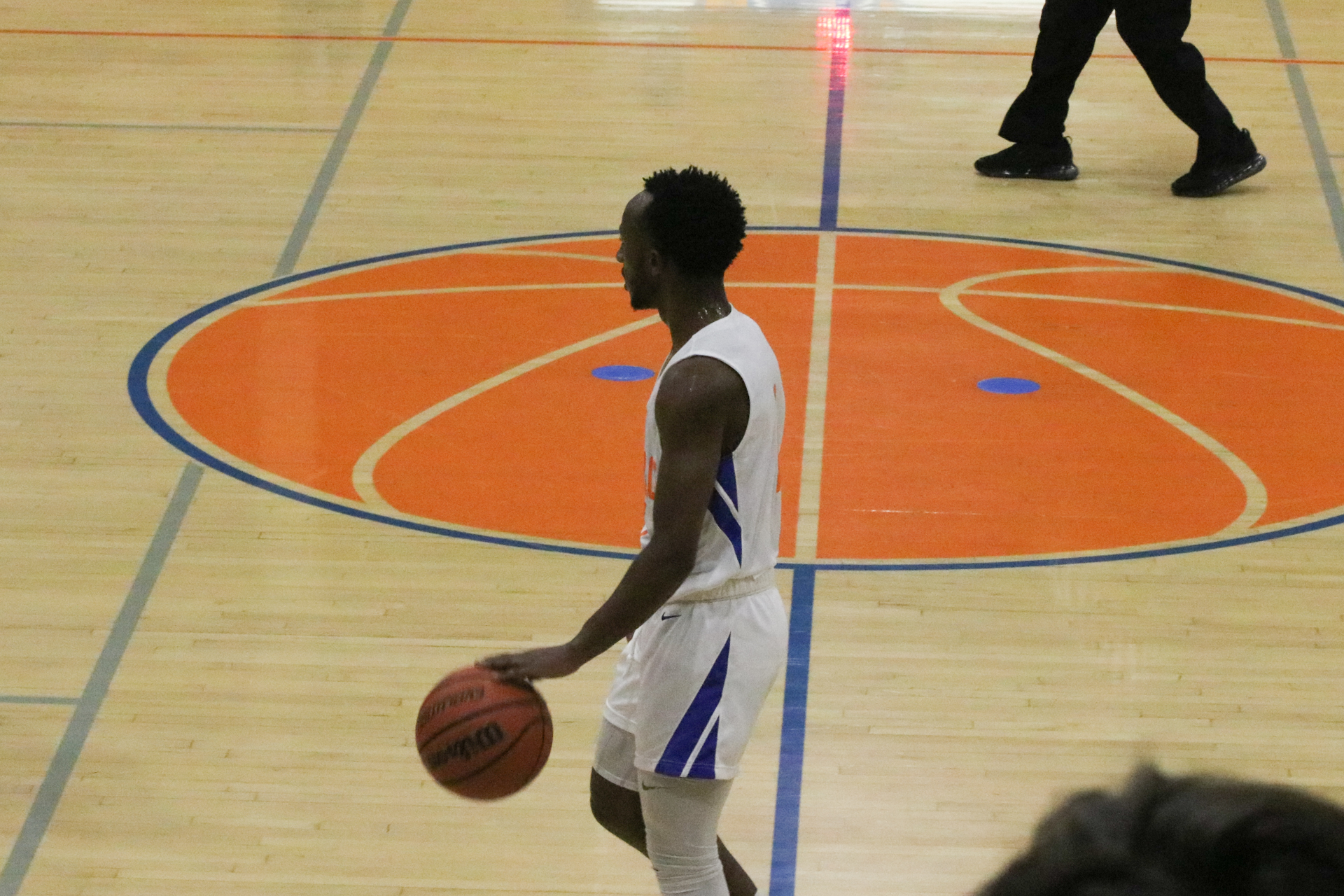From Rwanda to Phoenix: Prince Nshuti’s story
March 2, 2020 by Tiara Rose, Arizona State University

Tiara Rose is an ASU Cronkite School of Journalism student assigned to cover Camelback High School for AZPreps365.com
Despite being born in a refugee camp where basketball was not often played, Camelback senior Prince Nshuti has committed to compete for Phoenix College next year.
“A lot of people don’t believe me, but I’ve been playing for four years,” Nshuti said. “My freshman year is when I really started playing.”
Nshuti was born over 9,000 miles from Phoenix in the Gihembe Refugee Camp in Rwanda. The point guard didn’t come to the U.S. until he was nine years old. His widowed mother made the decision to come to America so that her children could have a chance at a good education and a better life.
Nshuti’s older brother, Innocent Nsengiyumva, was born in Congo, but said that his family escaped Congo to live at Gihembe just before Nshuti was born.
“It wasn’t safe,” Nsengiyumva said. “That’s why we moved to Rwanda.”
The Office of the United Nations High Commissioner for Refugees (also known as the UN Refugee Agency) notes on its website that refugee camps are “temporary facilities built to provide immediate protection and assistance to people who have been forced to flee due to conflict, violence or persecution.”
Although these spaces are meant to provide safety, unrest in the late 1990s resulted in mass killings at Rwandan camps. Gihembe opened in 1997 to host survivors of a massacre that happened at a camp called Mudende.
Nsengiyumva, who is almost eight years older than Nshuti, said the conditions at Gihembe were tough and rough.
“Think about living in a house with two bedrooms and there are seven people,” Nsengiyumva said. “Nobody works there. You have to wait for support. You can’t go to school because there’s no money.”
A lottery system allowed Nshuti and Nsengiyumva’s family to move to the U.S. in 2012.
“They were looking for people to bring to the U.S.,” Nsengiyumva said. “They would choose names and luckily they chose our names. That’s how we started the process, but it took us two years to get approved.”
Although Gihembe was all that Nshuti knew for the first part of his life, one of his teachers at Camelback helped him learn more about his roots.
Josh Rosenbaum, a reading specialist at Camelback, said he thinks of Nshuti as more like a son than a student. Rosenbaum said that he used his time with Nshuti to learn about the conflict in Congo and Rwanda.
“I started hearing about the (Congolese) civil war,” Rosenbaum said. “(Nshuti) didn't even really know about that so much because he was locked down. So we were able to learn a lot together.”
Even with new knowledge about his past, Rosenbaum said the camp isn’t something that Nshuti goes into detail about very often. Instead he spends time on classwork, socializing, and playing basketball.
One of Nshuti’s closest friends and teammates, senior Beau Castaldi, said that Nshuti is dedicated to success in and outside of the classroom.
“I like to surround myself with people that better me,” Castaldi said, “and he's one of the few people that make me better. He pushes me to become better in basketball and in school.”
Nshuti’s varsity basketball coach, Marlon Rhymes, had a front-row seat to Nshuti’s development as a player. Rhymes said he remembers Nshuti being mentored by the seniors when he was just a freshman.
“He fit right in, when it came to skill level and heart,” Rhymes said.
Nshuti’s work ethic over his four years at Camelback is why Castaldi thought Nshuti made a great basketball captain.
“He’s been dedicated since freshman year,” Castaldi said. “He has always stayed at practice longer and put in the effort that no one else does. He has leadership qualities that no one else has.”
Those qualities led the Camelback Spartans to a Feb. 14 game against the Centennial Coyotes that would have put the team into the AIA 5A state tournament. The Spartans were dominant in the first half and had a double-digit lead in the third quarter. Centennial surged back late in the game though, and the Spartans lost, 56-53.
For some of Nshuti’s teammates, that game was the last time they would play basketball for a school. Nshuti, though, officially agreed a couple weeks later to play for the Phoenix College Bears.
Rhymes credited Nshuti’s hard work as the reason the guard will play basketball in college. The coach acknowledged that while some players have scouts looking at them as ninth graders, Nshuti started without recognition. Still, he was able to catch the attention of Duane Eason, the coach of Phoenix College’s basketball team.
Although Nshuti has many interests on and off the court, he isn’t sure which field he’ll pursue after he graduates in May. His teammates, coaches, and teachers agree though, Nshuti is destined for success in whatever path he chooses in the future.
